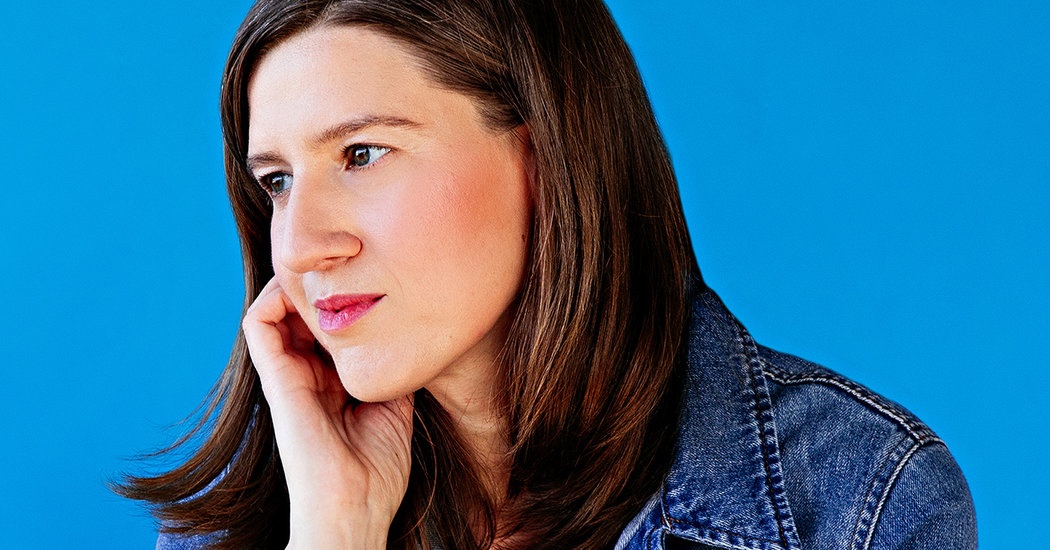LURKING
How a Man or woman Became a Consumer
By Joanne McNeil
In her 1st book, “Lurking,” Joanne McNeil charts the historical past of the web by means of the ordeals of the consumers. These are not automatically the similar as men and women. Conflating the two, McNeil describes, “hides the ‘existence of two lessons of persons — developers and end users,’” as the artist Olia Lialina has put it.
The big difference: Builders establish and form the on the internet activities that consumers run all around in like rats in a maze. Consumers make their way via the huge world wide web trying to satisfy sure necessary wants. McNeil separates these behaviors — exploring, activism at the cost of security, privateness, id, local community, anonymity and visibility — into chapters, just about every speaking about the platforms and sites that serve them. McNeil maps out the history of the world-wide-web, from the 1st bulletin boards, to the early days of blogging, to the emergence of social platforms like Friendster and ultimately to the on the net environment we are living in these days, dominated by tech giants like Google, Facebook and Amazon.
Some customers are deeply nostalgic for particular platforms of the earlier. “Most shocking is how fondness for Myspace has developed as time passes,” McNeil writes. “It has occur to signify a certain instant of flexibility and drama on the web, especially to those people also youthful to recall it.” She offers the musician Kyunchi, who compares Myspace to Woodstock. It was a exclusive, exceptional place and if you weren’t there, you skipped it.
McNeil uses language that is incisive still poetic to capture thoughtful insights about the world-wide-web, like the insidiousness of these platforms’ monetization strategies: “The challenge with Instagram lies in how user id entwines with commerce.” Nor does she mince text when taking on one behemoth in individual. “I detest it,” she writes. “The company is one of the most significant issues in contemporary history, a digital cesspool that, whilst calamitous when it fails, is at its most perilous when it works as supposed. Facebook is an ant farm of humanity.”
At quite a few details, “Lurking” speaks to the powerlessness we people can from time to time feel on these platforms, how challenging it can be to remain in regulate. In 2011, having gotten her first Iphone, Winona Ryder advised Jimmy Fallon she was now “afraid of the world-wide-web,” the place she nervous that one day, “I’m going to be seeking to uncover out what motion picture is enjoying at what theater and then suddenly be a member of Al Qaeda.”
Usually the creator returns to the titular actions fundamental them all, which she defines as an “internet superpower,” a “real-daily life invisible cloak.” Through lurking, McNeil finds she “had handle in excess of my identification and I could opt for what areas of it I uncovered to other people.”
And stealth is, of study course, a natural reaction to considerably of the new dislike that has emerged on the net in our life span. “Cyberspace did not submerge our identities less than a common oneness of ‘user,’” McNeil writes. “Rather, the internet heightened our recognition of id,” and, as she warns in the chapter entitled “Clash,” when specific identities are confronted with mass belief units like Gamergate and correct-wing extremism, distress, outrage and even trauma can ensue.
Tempting as it is to blame the internet’s rampant hostility on a couple negative end users, McNeil rather places the onus on “systems, buildings and abstract processes like ‘design.’” In any other case, “when users are scapegoated, Silicon Valley is left off the hook.”
The media is no support, either, its “delayed — and generally misplaced — concerns about technology” obtaining precipitated “an infinite ping-pong of area improvements and ways,” relatively than a a lot-wanted “focus on structural improvements like decommodification and decentralization to enact a improved web.”
“Lurking” does not just spotlight the internet’s complications, it also voices her hope for an alternate foreseeable future. In her last chapter, titled “Accountability,” McNeil compares a healthier internet to a “public park: a house for all, a gain to absolutely everyone a house one can enter or leave, and go away without a trace.” Or probably the internet really should be a lot more like a library, “a civic and unbiased body … guided by ideas of justice, legal rights and human dignity,” exactly where “everyone is welcome … just for staying.”
Ultimately, severing our tethers to these platforms needs opting out, an more and more complicated activity as the earth turns into at any time a lot more related. Perhaps “Twitter’s bard” @Dril stated it finest, typo and all: “who the [expletive] is scraeming ‘LOG OFF’ at my house. demonstrate on your own, coward. i will under no circumstances log off.”







Leave a Reply